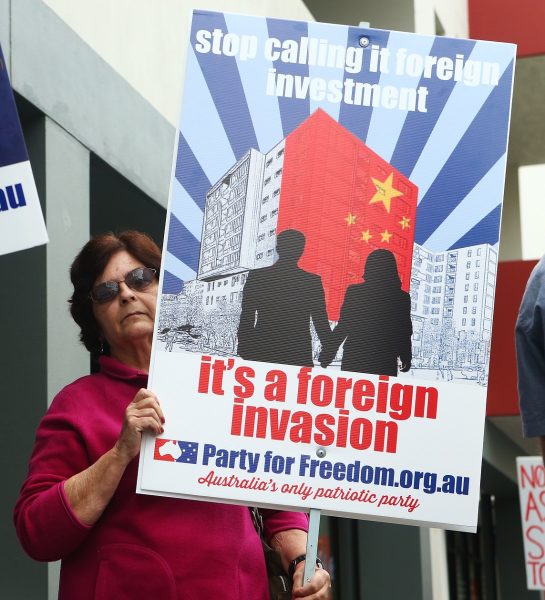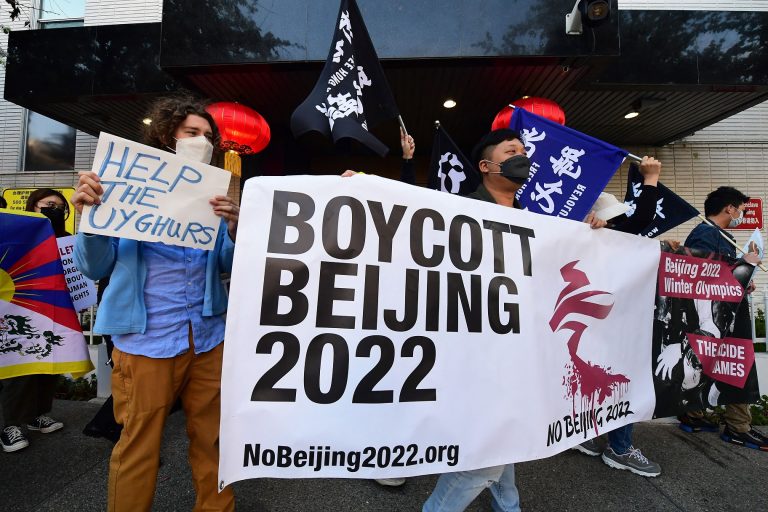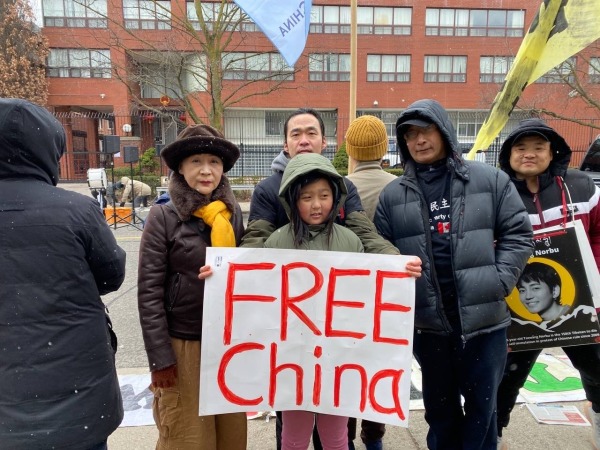Amid increased foreign influence and interference, a vast majority of Canadians support the government to create a registry of foreign agents, similar to ones in Australia and the United States, to shed light on Canadian citizens who get paid to work on behalf of adversarial countries such as China or Russia.
A public-opinion survey, conducted by Nanos Research for The Globe and Mail, found that 88 percent of Canadians support or somewhat support a foreign-influence registry which would require an individual or an entity working for a foreign authority to register with the government. In contrast, the Nanos survey showed that only 7 percent of those surveyed oppose or somewhat oppose that lawyers, lobbyists and retired politicians be required to register when they take on paid roles for foreign governments and companies linked to those countries.
The poll, conducted between Dec. 19 and 22, is a dual-frame hybrid telephone and online random survey that is accurate to within 3.1 percentage points plus or minus, 19 times out of 20, according to the Globe, which didn’t specify how many respondents the poll had.
“Transparency in terms of these kinds of foreign interests and also transparency in terms of Canadians who are working for the foreign interests is fair game,” pollster Nik Nanos told the Globe. “The reality is that if you are afraid to report that you have been working for a foreign country or a foreign organization, perhaps that should be a red flag.”
READ MORE
- Internal Canadian Government Communications Suggest Troubling Allegiances to Beijing
- Canadian Intelligence Warns Trudeau the CCP has Compromised Elected Officials Since at Least 2019
- China Sentences Canadian Michael Spavor to 11 Years for ‘Espionage’
The Nanos poll came after Public Safety Minister Marco Mendicino’s announcement on Dec. 2 that the government of Canada planned to hear from experts and the broader public — including members of affected communities — on whether it should follow the United States and Australia, the lead of key allies in establishing a registry, as a means of preventing outside interference in Canadian affairs.
Success
You are now signed up for our newsletter
Success
Check your email to complete sign up
The government acknowledges that foreign governments and organizations routinely try to influence Canadian policies, officials and democratic processes in clearly visible and legal ways — for instance, through diplomatic channels.
Some states, on the other hand, engage in interference to advance foreign political goals. As part of these efforts, they might employ people to act on their behalf without disclosing ties to the foreign state, Public Safety Canada said.
Requiring these individuals to formally register with the government they are trying to influence can make such dealings more transparent, with the possibility of fines or even prison time for failing to comply.
Well before Mendicino’s announcement, the government had made a similar commitment on Feb. 23, 2021, when Robert Oliphant, parliamentary secretary to Foreign Affairs Minister Mélanie Joly, told the House of Commons that the federal government was “actively considering” such a registry, but he did not give a specific timeline.
Nanos said it won’t be justifiable for the Liberals to continue to delay on delivering what Canadians believe is a necessary tool to provide transparency involving those who work for the interests of foreign governments.
“If they kick the can on this and we find out that there are issues or potential risks in Canada, there will be a political price to pay,” he said.
Canada falling behind
In the U.S., a Foreign Agent Registry Act has been in place since 1938. In recent years, new legislation, such as the “Countering the Chinese Government and Communist Party’s Political Influence Operations Act of 2018,” has been introduced in response to Beijing’s growing interference in the country.
In Australia, the Foreign Influence Transparency Scheme has been enacted since late 2018, aimed at addressing China’s influence on the country’s politics. In 2017, former Prime Minister Malcolm Turnbull specifically highlighted “disturbing reports about Chinese influence” as an example of why the bill was necessary.

The Australian registry requires Australians to register work they are doing on behalf of foreign governments and foreign state-owned enterprises as well as individuals or political organizations affiliated with the countries. Registrable activities include not only lobbying government but also communication campaigns and disbursement of money or other items of value.
- Australian Regulators OK CCP Acquisition of Gold Miner Cardinal Resources
- How China Uses COSCO Ships to Boost Its Political Influence Abroad
In addition, the Australian registry targets people who are using Beijing’s talking points on, for example, the South China Sea, or student groups acting at the direction of the Chinese consulate and former politicians and public servants who appear on TV but are delivering a Chinese line and getting paid for it.
In Britain, the Foreign Influence Registration Scheme was introduced in October 2022, as a means of compelling individuals acting on behalf of foreign interests to declare their influence activity or otherwise face criminal penalties.
In Canada, federal officials have long cautioned that Canada is targeted by foreign states such as China and Russia as they seek to advance their political, economic and security interests.
The Canadian Security Intelligence Service warned last year that it sees steady, and in some cases increasing, foreign interference by state actors against Canada.
In a Nov. 28 letter to the Commons committee on procedure and House affairs, RCMP Commissioner Brenda Lucki said the Mounties are aware of foreign actor interference in relation to a broad range of activities, including meddling in democratic processes.
Opposition parties and other critics of the Chinese Communist Party, including the Canadian Coalition on Human Rights in China, have called on the Liberal government to set up a similar registry.
David Mulroney, former Canadian ambassador to China and a prominent voice advocating for such a registry, said on Twitter on Dec. 27 that the result of the Nanos poll is “encouraging.”
“China in particular uses proxies, including politicians, in foreign countries to deliver its talking points and launder its illicit payments,” Mulroney said in an interview Monday. “Canadians need to know who’s pulling the strings and making the payments.”
Mulroney added in his tweets that new regulations should also limit the ability of former public servants and politicians to “cash in on the knowledge, experience, contacts gained while serving Canada.”
Former Conservative MP Kenny Chiu, however, said he doesn’t have high hopes that even after an inquiry, a bill would be introduced and actually passed into law, because “it’s really unreasonable.”
- Canada Aims to Boost Defense, Cyber Security in Indo-Pacific to Counteract ‘Disruptive’ China
- The Quiet Case of Canada’s Own Virologic Scandal With the Wuhan Institute of Virology
According to Chiu, as a minority government which has a typical lifespan of a year and a half, the Liberals would likely face another election soon and terminate all legislative efforts, even after the public consultation was completed, generating a report that would also take much time to be reviewed.
“Just like many things that Justin Trudeau’s government is doing, they are more into virtue signalling than to perform anything substantial,” Chiu said.
“The media report says that [Mendicino] is prepared to launch such a consultation. I still wait for the day when a registry, legislation is passed in the House of Commons. And if they are so interested in doing the right thing, they could have expedited my private member’s bill a little bit more than a year and a half ago.”
Chiu was referring to Bill C-282, “An Act to Establish the Foreign Influence Registry”, which he introduced to the previous parliament in April 2021, with the aim of imposing “an obligation on individuals acting on behalf of a foreign principal to file a return when they undertake specific actions with respect to public office holders.”
He said the government could also support the private member’s bill S-237, “An Act to establish the Foreign Influence Registry and to amend the Criminal Code,” introduced in February by Sen. Leo Housakos. The bill has remained in the process of second reading in the Senate since March. “All they have to do is just fast-track that. None of that is happening,” Chiu said.













